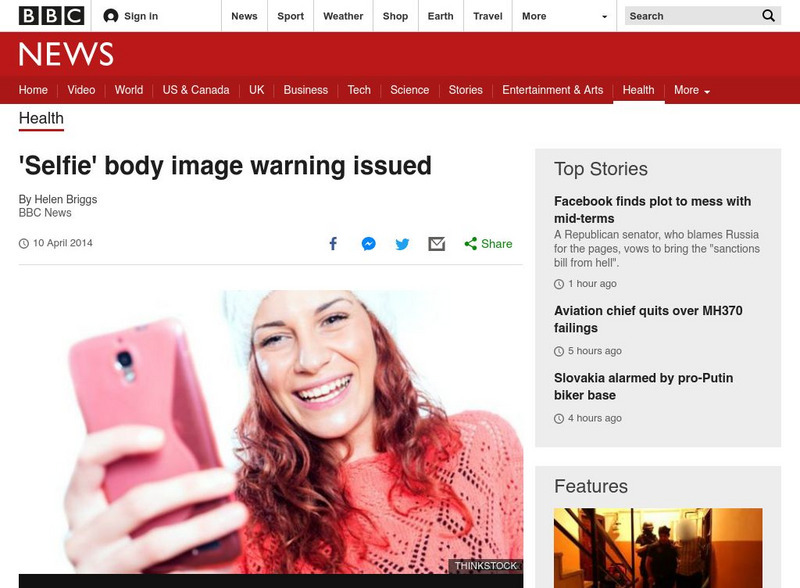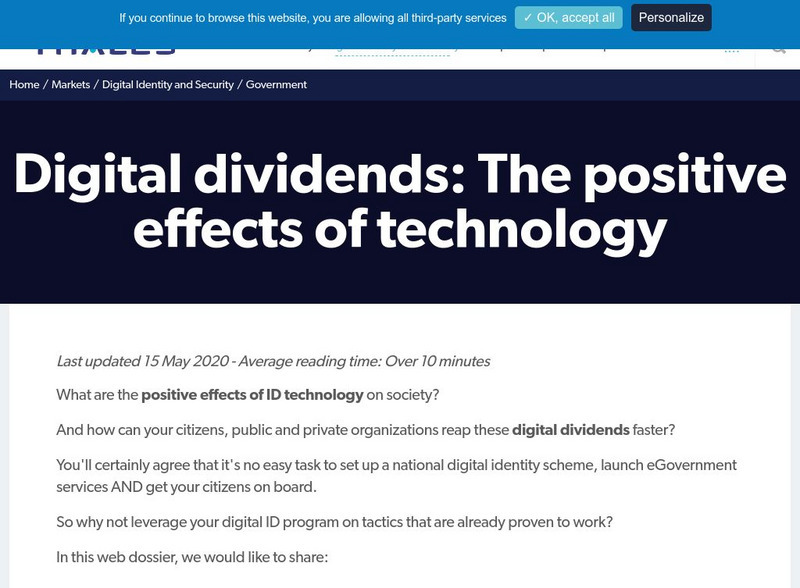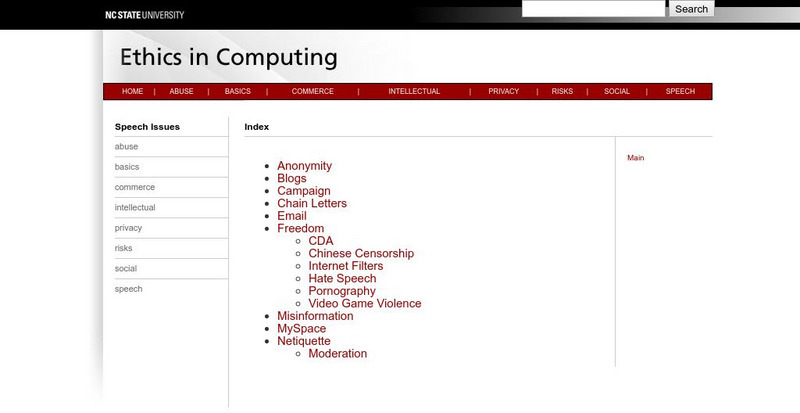Hi, what do you want to do?
Common Sense Media
Common Sense Media: Education: Lesson Plan: Powerful Passwords
Students learn the benefits of using passwords and then play a board game to discover some strategies for creating and keeping secure passwords. Requires free membership.
Common Sense Media
Common Sense Media: Cyber Smart! Student Curriculum Lesson: Can You Hack It? [Pdf]
Young scholars learn that computers and electronic files are property and explore the reasons for, consequences, and ethics of teen hacking. This ISTE-aligned lesson plan for Grades 6-8 includes student activity and Home Connection...
Common Sense Media
Common Sense Media: Education: Lesson: That's Private!
[Free Registration/Login Required] Staying safe online is a lot like staying safe in the real world. By helping a Digital Citizen sign up for a new app, 2nd graders learn about the kinds of information they should keep to themselves when...
BBC
Bbc News: Selfie Body Image Warning Issued
Could too much involvement in social media cause body image issues. Read about what current research says on the subject.
Other
Thales Group: Digital Dividends: The Positive Effects of Id Technology
This article provides a pro-business perspective on the adoption of digital identification of citizens by governments around the world. It looks at how governments can better serve their citizens by using this technology, its economic...
NC State University
North Carolina State University: Ethics in Computing: Speech Issues
Curated collection of links to articles, essays, and related topics on responsible use of the Internet and information technologies with respect to speech and online hate compiled and maintained by a university instructor.
Get Safe Online
Get Safe Online: Use a Firewall
Firewall software forms the first line of defense against hackers and certain types of computer viruses. This site explains what a firewall can do to help secure a computer and what it cannot do. The site also discusses different types...
Common Sense Media
Common Sense Media: Education: Lesson: Putting a Stop to Online Meanness
[Free Registration/Login Required] The internet is filled with all kinds of interesting people, but sometimes, some of them can be mean to each other. With this role play, help your students understand why it's often easier to be mean...
Other
Childnet International: Digizen: Social Networking
Most students participate in social networking applications such as Facebook, MySpace, or Twitter. This site presents the benefits and risks of using social networking tools in education. The site also presents examples of successful...
Common Sense Media
Common Sense Media: Education: Build Your Ideal Community: Grades 6 8
Students will consider the characteristics of positive online communities that promote responsibility and respect. Requires free membership.
Common Sense Media
Common Sense Media: Education: My Creative Work (K 2)
Students learn the basics - title, name, and date - for crediting creative work. They discuss the importance of citing work, as well as recognizing that they should give themselves proper credit so that others can attribute their work...
Other
Digizen: Cyberbullying: Let's Fight It Together
Video tells the story of a young teenager who is subjected to cyberbullying-repeated hostile, harmful, and harassing attacks directed at individuals though technological means (Internet, mobile phones, social networking sites)....
Code.org
Code.org: Cs Fundamentals: Course B
Learn the basics of computer science and internet safety. At the end of the course, create your very own game or story you can share.
Code.org
Code.org: Cs Fundamentals: Course A
Learn the basics of computer science and internet safety. At the end of the course, create your very own game or story you can share.
University of Hawai'i
University of Hawaii: Network Etiquette
This site is provided for by the University of Hawaii. Information on network etiquette with information on not sending chain mail, spamming, and other Usenet inappropriate uses.












